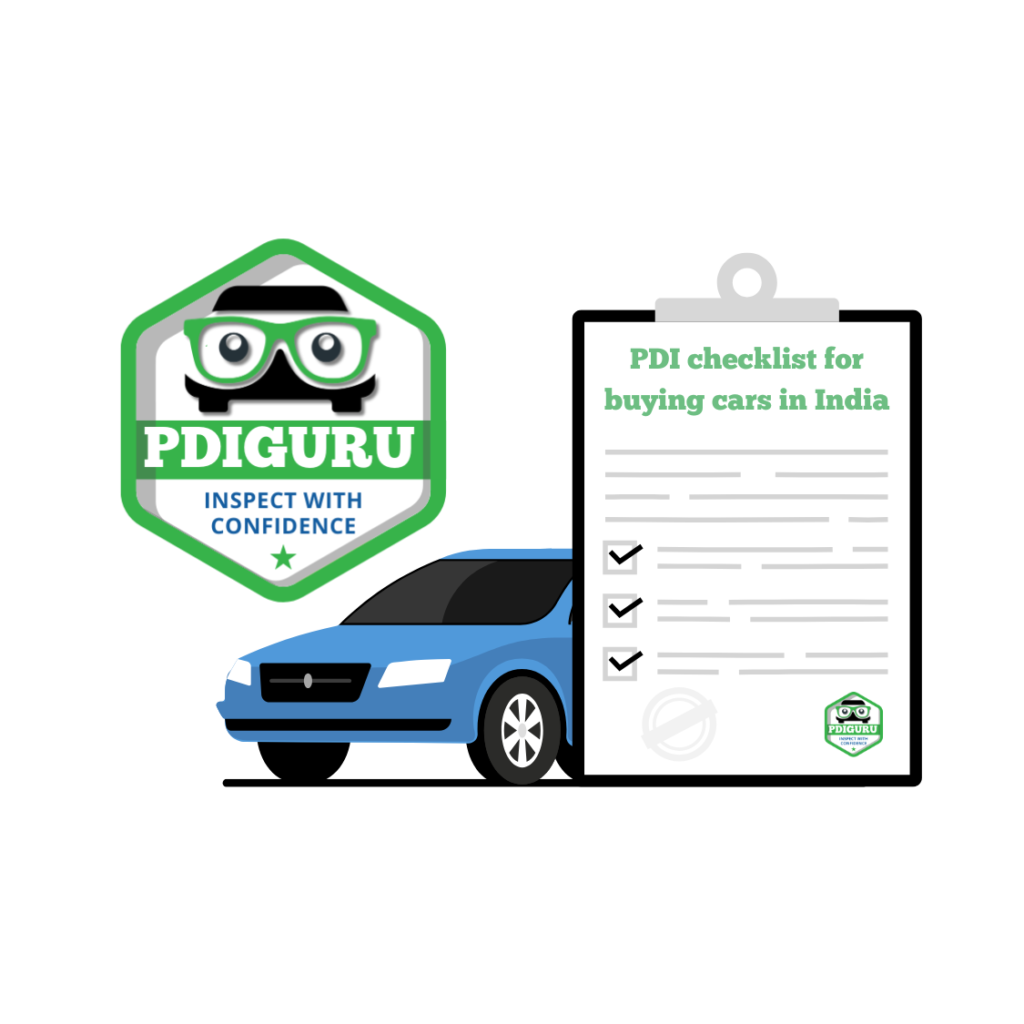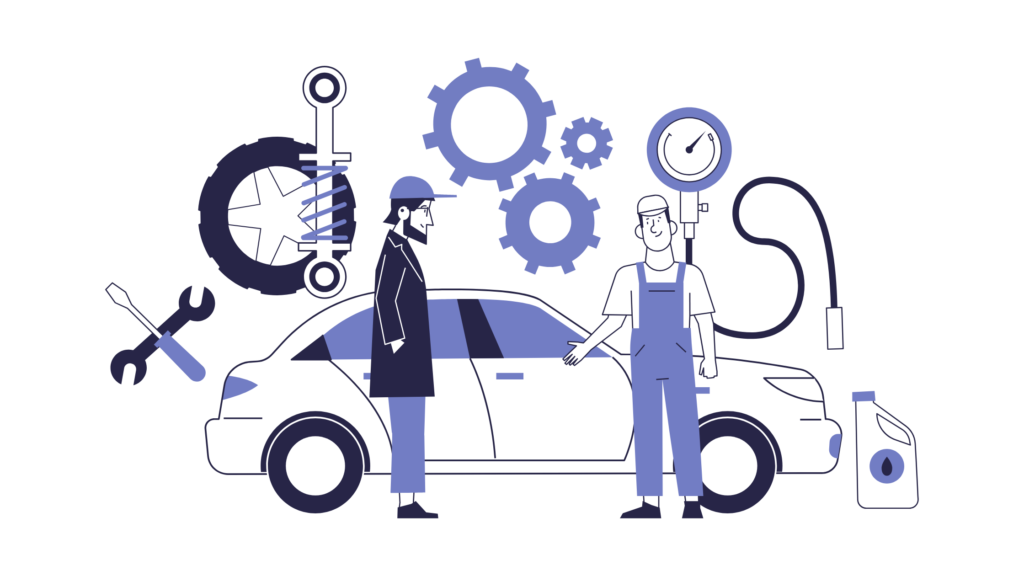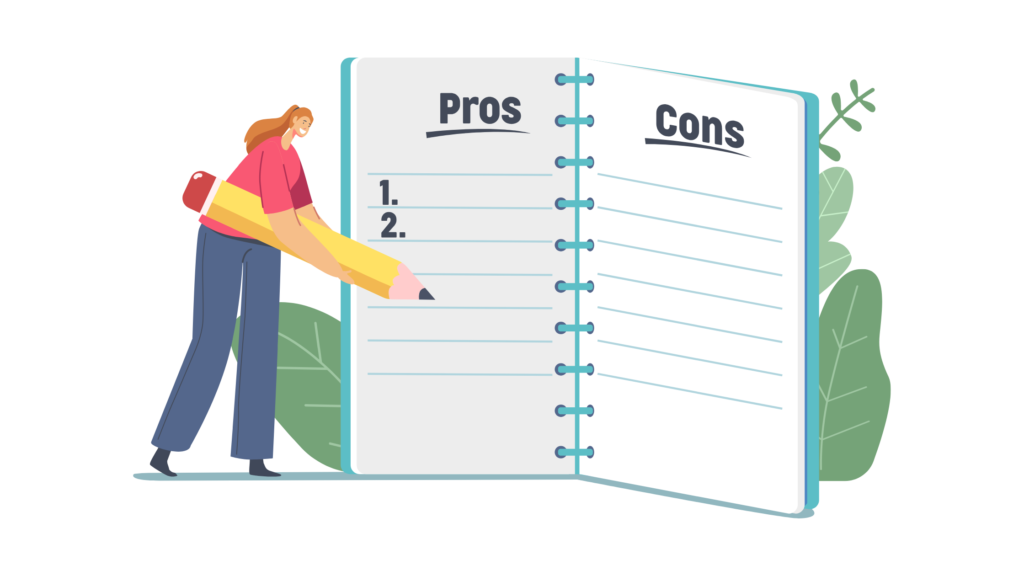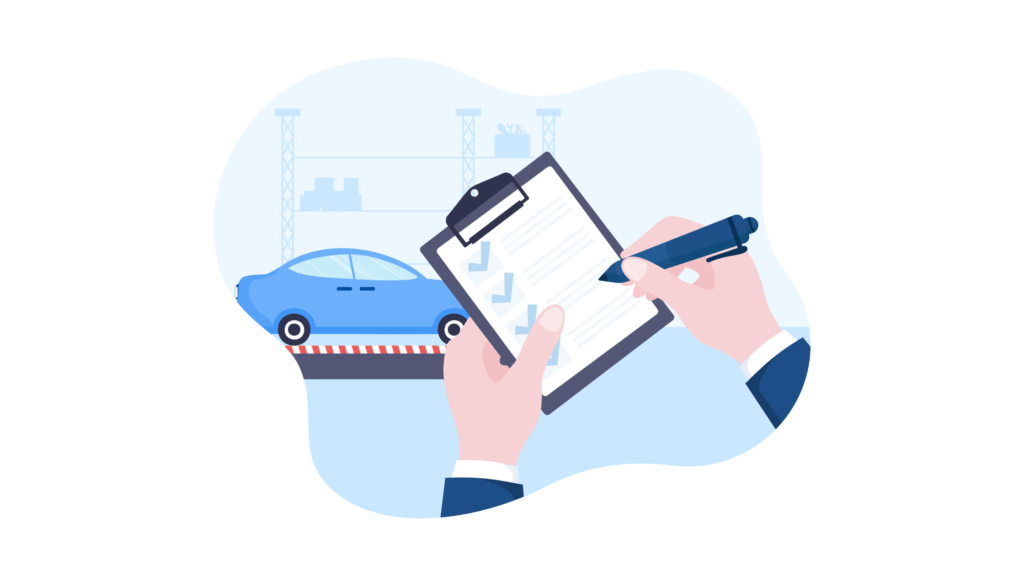A Comprehensive PDI Checklist Can Help!
Before diving into the details of hiring a third-party mechanic for your vehicle’s Pre-Delivery Inspection (PDI), make sure you’re fully equipped with a detailed checklist. It can serve as a helpful guide to ensure you don’t miss any critical steps during the inspection. Download your free PDI checklist here!

What is a Pre-Delivery Inspection (PDI)?
A Pre-Delivery Inspection (PDI) is an essential step in the car-buying process. It ensures the vehicle meets the manufacturer’s standards and is free from defects or damage before it’s handed over to the buyer. While dealerships perform a basic PDI, it may not be as thorough as you might expect, leaving room for potential issues to slip through the cracks.
PDIGuru Pro Tip
“Dealerships often focus on getting the car ready quickly for delivery. A third-party mechanic can conduct a more in-depth inspection, especially for used cars.”
Why Consider Hiring a Third-Party Mechanic for Your PDI?

Though a dealership typically carries out a PDI, hiring a third-party mechanic for PDI can offer a deeper, unbiased evaluation of the car’s condition. Let’s explore the key reasons why it might be worth the investment.
1. Expertise Beyond Dealership Inspections
Dealership inspections can be limited to visual checks and superficial evaluations, often missing hidden mechanical, electrical, or safety-related issues. A third-party mechanic for PDI brings specialized skills to the table. They use advanced tools to check for engine troubles, suspension wear, and even potential electrical faults that might go unnoticed by a dealership.
PDIGuru Pro Tip
“Third-party mechanics have access to advanced diagnostic tools that help assess the engine’s health, brake system, and electronics — areas that the dealership’s basic PDI may not fully cover.”
2. Unbiased and Transparent Evaluation
A third-party mechanic for PDI provides an objective perspective. Dealerships, while typically honest, have a financial incentive to close the sale quickly. In contrast, independent mechanics aren’t tied to the dealership, so their evaluation is purely based on the car’s actual condition. They can provide honest feedback and flag any concerns without any conflict of interest.
3. A More Thorough Inspection for Used Cars
When purchasing a used car, the risk of hidden issues increases, and a more detailed PDI is often necessary. A third-party mechanic for PDI is likely to offer a more thorough examination, including checking for wear and tear, engine leaks, brake pad thickness, and suspension health. Such thoroughness can prevent unexpected repairs down the road.
4. Greater Protection Against Hidden Defects
Some problems with a car may not be immediately noticeable and can only surface after the car has been driven for some time. A third-party mechanic for PDI can identify these early on, providing you with the opportunity to either negotiate repairs or avoid a bad deal altogether.
Potential Drawbacks of Hiring a Third-Party Mechanic for PDI

While hiring a third-party mechanic for PDI can be beneficial, there are some potential downsides to consider.
1. Added Cost
Hiring a third-party mechanic for PDI involves an additional cost. The fees for a professional mechanic’s inspection can range from a few hundred to several thousand rupees, depending on the depth of the inspection. It’s important to weigh the cost of the inspection against the value it brings in terms of peace of mind.
2. Time Investment
A third-party mechanic for PDI can take several hours, or even a full day, to perform a comprehensive inspection, especially for used cars. This could delay the purchase or delivery process if you are on a tight schedule. It’s important to factor in this extra time when deciding if this route is right for you.
3. Limited Need for New Cars
If you’re purchasing a new car, the need for a third-party mechanic might be less crucial. New vehicles from reputable dealerships typically have fewer issues, and a basic PDI by the dealership is often sufficient. However, if you suspect any problems, such as a hidden accident history or issues with electronics, a third-party mechanic’s inspection may still be helpful.
PDIGuru Pro Tip
“For new cars, consider a third-party inspection to check the paint, alignment, and accident history. These checks are more relevant than deep mechanical evaluations.”
What to Expect from a Third-Party Mechanic’s PDI

If you decide to hire a third-party mechanic for PDI, here’s what you can expect during the inspection:
1. Mechanical Health Checks
A professional mechanic will conduct a thorough inspection of the engine, transmission, suspension, exhaust system, and brakes. They often use diagnostic equipment to detect hidden issues in areas like the fuel system, ECU (Engine Control Unit), and alternator, which may not be easily spotted in a basic dealership inspection.
2. Electrical System Diagnostics
A third-party mechanic for PDI will also run checks on all electrical components of the car, including the battery, alternator, lights, and wiring. They may even check for software-related issues within the vehicle’s computer systems that a dealership might miss.
3. Road Test Evaluation
A vital part of a third-party mechanic for PDI is the road test. During this phase, the mechanic will assess the engine’s performance, braking response, suspension behavior, and transmission shifts. They’ll also check the vehicle’s overall driving dynamics and listen for any abnormal sounds that could indicate issues.
Common Issues Found During PDI and How to Handle Them with Dealership
During a PDI, several common issues can surface, especially with used vehicles. Some of the most frequent concerns include:
- Suspension Wear: This could lead to discomfort or handling issues down the road.
- Brake Pad Thickness: Thin brake pads could cause safety concerns and need replacement soon.
- Engine Leaks: Minor leaks that may require attention to prevent more serious damage.
- Electrical Faults: Issues like faulty lights or wiring problems.
If you notice any of these issues, it’s important to address them with the dealership. You can request repairs before finalizing the purchase or, in some cases, negotiate the cost of repairs. For more information on common issues and how to handle them, check out our dedicated blog on Common Issues Found During Pre-Delivery Inspection (PDI) and How to Handle PDI Issues and Dealership Complaints Effectively.
Should You Hire a Third-Party Mechanic for PDI? Pros and Cons

Here’s a quick summary of the pros and cons to help you decide:
Pros:
- Unbiased Assessment: Provides an objective report on the car’s condition.
- Thorough Inspection: Goes deeper than a dealership’s PDI, detecting hidden issues.
- Expertise: Specialized knowledge and diagnostic tools uncover problems dealerships might miss.
- Protection: Identifies potential defects early, especially in used cars, preventing future repairs.
Cons:
- Additional Cost: You’ll need to budget for the mechanic’s inspection fees.
- Time Investment: The inspection can take several hours or more.
- Limited Need for New Cars: New vehicles might not need such in-depth evaluations unless you suspect a specific issue.
Conclusion: Is Hiring a Third-Party Mechanic for PDI Worth It?
Ultimately, hiring a third-party mechanic for PDI is a wise decision if you’re buying a used car, particularly one with a complicated history or higher mileage. A third-party inspection provides additional protection against hidden defects and costly future repairs. For new cars, the need for a third-party mechanic may be less critical, but it could still be helpful for verifying the car’s condition.
PDIGuru Pro Tip
“When purchasing a used car, always consider hiring a third-party mechanic for PDI for a thorough inspection. It’s better to invest in a professional check than risk facing serious issues down the line.”
Frequently Asked Questions (FAQs)
The cost typically ranges from ₹500 to ₹3000 or more, depending on the depth of the inspection and the mechanic’s rates.
Yes, a Pre-Delivery Inspection (PDI) is especially crucial for used cars to uncover hidden issues like engine problems or suspension wear. For a detailed guide on inspecting pre-owned vehicles, check out our Essential PDI Checklist for Buying Used Cars in India.
While you can conduct a basic inspection, hiring a professional mechanic provides a more thorough, technical evaluation, especially for complex issues.
Some common issues include faulty electronics, unbalanced suspension, or minor leaks. These problems can often be fixed before taking the car home, saving you time and money. Here you can find more about the Common Issues Found During Pre-Delivery Inspection (PDI) and How to Address Them.
If you discover any issues during the PDI, discuss them with the dealership. Make sure they are resolved before accepting the car, or ask for a solution. If you need more guidance on handling these types of situations, we’ve written a dedicated blog on “How to Handle PDI Issues and Dealership Complaints Effectively: A Guide for Car Buyers” This resource will help you navigate the next steps when dealing with discrepancies and ensure you have a smooth resolution process.
For a new car, a third-party inspection is generally not necessary unless you suspect issues like an accident history or hidden problems.
Recommended third-party PDI experts typically include certified automotive mechanics, independent workshops, or vehicle inspection services that specialize in pre-purchase inspections. You can also look for services like CarDekho or Cars24 that offer professional PDI services for used cars. It’s important to ensure that the expert or service you choose has a solid reputation, certifications, and experience in diagnostic tools and thorough inspection processes.
Ready to ensure your car is in top condition?
Download our free, comprehensive PDI checklist now to guide your inspection!



